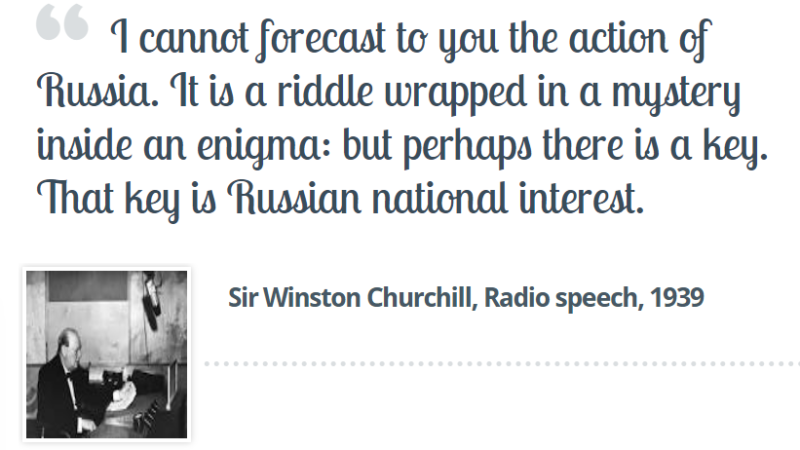Preparing for Elections in Ukraine
Preparing for New Parliamentary Elections in Ukraine
Two years after the previous elections for the Ukrainian Parliament, a new election campaign is underway. The vote will take place on October 26 under the most difficult conditions the independent state has ever faced. What is the likely outcome and what impact might the newly endorsed Parliament have on Ukraine, the continuing conflict with Russia and the war zones of the Donbas? It is worth recalling that the previous parliament, elected in 2012, will bear little resemblance to the future one. Three of the five parties that crossed the 5% barrier to attain seats in the assembly are now either defunct, not running, or banned (Regions, with 185 seats; the Ukrainian Democratic Alliance with 40, and the Communist Party of Ukraine, with 32). Another—Svoboda—is no longer the chief representative of the radical right, while Fatherland (Batkivshchyna, 101 seats) has been undermined by deep internal divisions. In this sense therefore, the parliament will represent something quite new. But some seven million potential voters in the east are unlikely or unwilling to take part, meaning that the election is essentially about the views of those who live in central, western, and southern Ukraine.
One of the most recent polls on parties and blocs was conducted by the Kyiv Institute of Sociology on August 21-28, 2014. The survey encompassed 2,040 respondents from 110 settlements of all Ukrainian oblasts, with the exception of the Republic of Crimea and Luhansk. Presumably, though it is not stated expressly, it also included some respondents from the city of Donetsk, which is currently in the hands of separatist rebels. Perhaps the most pertinent category of questions concerned the likely voting habits of those committed to participation in the elections. The results were as follows: Solidarity Party (Petro Poroshenko): 28.5% Radical Party (Oleh Lyashko): 16.5% Fatherland Party (Yulia Tymoshenko, Arsenii Yatsenyuk): 10.0 Civic Position (Anatolii Hrytsenko, former Minister of Defense): 9.2 UDAR (Vitalii Klychko): 7.2 Svoboda (Oleh Tyahnybok): 6.9 A Strong Ukraine (Serhii Tihipko): 4.7 Communist Party of Ukraine (Petro Symonenko): 3.9
In terms of the regions of Ukraine, more than one-third of those polled in the east and 22.9% of those in the south responded that they did not intend to take part in the elections. Likely participation rates in the West and Center were very high. In the West support was almost evenly divided between Solidarity and the Radicals, whereas in the Center, support for the former was double that of the latter.
Several recent developments have occurred since President Poroshenko dissolved Parliament on August 25 after the fall of the coalition “European Choice.” In late August, Solidarity, which had failed to achieve much influence in past elections, became known as the Petro Poroshenko Bloc. In this way it identified itself with a popular president who had achieved a resounding victory in the May 2014 presidential elections. The name change was announced by the former Minister of Interior Yuri Lutsenko, who had served a prison sentence under the Yanukovych presidency, and has taken on the role of party chairman.
On September 13, Prime Minister Arsenii Yatsenyuk’s newly created Popular Front declared that it would oppose the Poroshenko Bloc, following its withdrawal from the Fatherland (Batkivshchyna Party), reportedly because of disagreements with Yulia Tymoshenko. Alongside Yatsenyuk will stand the Speaker of the Parliament Oleksandr Turchynov, who took over as Acting President of Ukraine following the departure of former president Viktor Yanukovych last February. Also included in the party’s ranks are Interior Minister Arsen Avakov and journalist Tatiana Chornovil, his current Advisor. Chornovil is second on the party list, with Turchynov in third place.
On the following day, the Secretary of the Presidium of the Party of Regions, Boris Kolesnikov, announced that the party would not participate in the elections, but would form an “opposition government” in the new Parliament. Finally, the Ukrainian Democratic Alliance (UDAR), headed by the new Kyiv Mayor Vitalii Klychko, announced that it would take part in the elections jointly with the Poroshenko Bloc, thus repeating a practice followed in the earlier presidential elections when Klychko opted not to oppose Poroshenko and to settle for the mayoral role in the capital city.
On September 14, the Poroshenko Bloc announced that it already had a full slate of candidates on a list that seemed to include both competent and unlikely personalities. It included the three Baloha brothers in Zakarpatska (Viktor, Ivan, and Pavlo—Viktor was formerly the head of the Secretariat of the President of Ukraine during Viktor Yushchenko’s administration)—Ihor Palytsya, the governor of Odesa region, the controversial former Minister of Justice Roman Zvarych who in 2005 lied about his qualifications, the former Chairman of the National Bank Stepan Kubiv, the executive-director of the conference ‘Yalta European Strategy (YES)” platform associated with the Viktor Pinchuk Foundation, Ivanna Klympush-Tsintsadze, and the president’s son Oleksii, who is running in a riding in Vynnytsya Oblast.
Clearly the president is financially well-backed for the campaign and running high in the standings. But his path appears far from smooth. As noted on September 14 by analyst Timothy Ash, who provides regular briefings on Ukraine for Standard Bank of South Africa, the leaders of Ukraine have essentially formed two fronts: a Party of Peace, headed by the president; and a Party of War, under the leadership of Yatsenyuk, who is already adding to his party list the leaders of volunteer battalions that are fighting in the Donbas. Ostensibly this move may be calculated to undermine the influence of the Radical Party, whose leader Lyashko recently advised Parliament to shoot all deputies who collaborated with Russia. It may also serve to create a new divide between the “Euromaidan” parties.
What that rift signifies is that a likely comprehensive victory of the presidential forces may be followed by a more serious power struggle in which the Radicals and the Popular Front may find common cause. The struggle will be affected by three key factors.
First, it may depend on the long-term results of the September 5 battle of Ilovaisk, which marked the intrusion of regular Russian army units into the Ukrainian conflict, as well a decisive turn in the war. Will Poroshenko continue the conflict and try to retain Donetsk and Luhansk—as well as regain Crimea—at some future point, or will he seek a compromise solution with Russian president Vladimir Putin?
Second, and related to the first question, will the Ukrainian president permit either the loss of the eastern territories or the federalization of Ukraine? Clearly Yatsenyuk will not entertain either option, and at the recent YES conference, he took a much more uncompromising position when he declared that the goal of Putin was the “elimination” of Ukraine.
Third, can Ukraine, with or without the eastern regions and Crimea, recover from the devastating economic crisis that now embraces it? Valeria Hontareva, Chairperson of the National Bank of Ukraine, estimates that over this year, the GDP will decline by as much as 10%, much higher than original forecasts, and that the ratio of debt to GDP may rise to 73% by next year, compared to 43% in 2013. Added to the costs of war, thousands of refugees, and the direct impact of the conflict on East Ukrainian industry, one can anticipate acrimonious and bitter debates in the new Parliament. And clearly, the new Parliament must deal decisively with corruption and introduce new and substantial reforms, and not simply to satisfy the demands of the IMF.
Nevertheless, a new Parliament is badly needed. In the short term at least it will bolster the position of Poroshenko and increase the credibility of the new Ukrainian leadership among the public. Yet with the division of the Euromaidan forces, it will face before long two serious dilemmas. First, if too many concessions are made to the Russians, there will be potential for the formation of a more radical bloc of deputies, including both Yatsenyuk’s forces and those of the Radical right (Lyiashko, Tyahnybok, Dmytro Yarosh, and leaders of the volunteer military formations), raising the possibility of a new Euromaidan. And second, there is the question of accommodating the southern and eastern regions that were unhappy with Euromaidan and feel unrepresented in the current leadership.
Much of this electorate opposes a Russian invasion or separation; but it needs to be convinced why it should show allegiance to Kyiv. Lastly there is the sinister presence of Vladimir Putin and his obdurate and Gromyko-like Foreign Minister Sergey Lavrov (ironically he is of Georgian-Armenian background), who have at times seemed to favor Poroshenko over other opponents during the conflict (especially during the presidential elections) and who seek to expand Russia’s influence over Ukraine by any means.
At the minimum, for any kind of rapprochement with a government run by Poroshenko’s forces, they will demand a neutral Ukraine that commits itself neither to NATO nor the European Union, meaning in effect a Ukraine that falls firmly in the Russian sphere of influence. No Ukrainian leader is likely to survive such concessions; but likewise none can avoid the question of how to counter Russia or deal with its president. In this respect, the “defection” of Yatsenyuk, one of the ablest politicians in the Rada, is a serious blow, though not one that will have a serious impact on the Poroshenko Bloc’s chances of victory.

